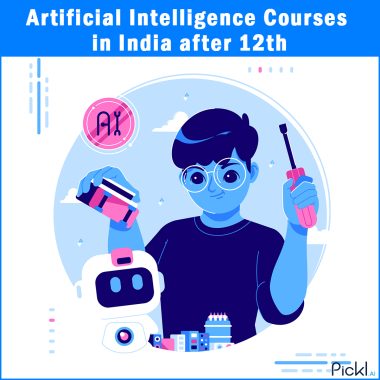Summary: This blog explores the ongoing debate of artificial intelligence vs human intelligence, comparing learning, emotion, adaptability, and creativity. It emphasises their synergy and ethical challenges while linking the relevance of understanding to future-ready careers through Pickl.AI’s data science programs.
Introduction
The clash between Artificial Intelligence (AI) and Human Intelligence has become a hot topic in today’s rapidly evolving world. With AI becoming more integrated into our daily lives, from virtual assistants to self-driving cars, people are questioning: Is AI better than the human brain?
Artificial Intelligence vs. Human Intelligence has sparked debates about what makes us human and what technology can achieve. In this blog, we’ll explore the intriguing comparison between the two, examining how AI shapes industries and whether it’s a revolutionary force or just an evolutionary step in human cognition.
By the end of this blog, you’ll have a clearer understanding of both Artificial Intelligence and Human Intelligence, along with how they stack up against each other in various aspects of life.
Key Takeaways
- AI excels at data-driven tasks, while humans shine in creativity and emotional intelligence.
- AI learns from vast datasets; humans learn through experiences and intuition.
- As AI expands, ethical concerns like bias, job loss, and privacy need urgent attention.
- AI and humans can collaborate to enhance healthcare, retail, and finance industries.
- Learning AI concepts through Pickl.AI’s data science courses prepares you for the future job market.
What is Artificial Intelligence?
AI refers to the ability of machines to simulate human-like intelligence. It involves creating algorithms that allow computers to process data, recognise patterns, make decisions, and even understand languages. Imagine letting a robot to think, reason, and solve problems—just like a human would, but much faster.
The global artificial intelligence market is booming. In 2024, it was valued at USD 279.22 billion, and it’s expected to grow at an impressive CAGR of 35.9% from 2025 to 2030. This rapid growth highlights how AI transforms industries and becomes an integral part of our daily lives.
AI can be classified into two main categories:
- Narrow AI: This is the “weak” version of AI that excels at specific tasks, like translating languages or recognising faces. It’s great at doing one thing well, but can’t think beyond that.
- General AI: This is the theoretical “strong” AI that can perform any intellectual task a human can. But guess what? We’re still far from developing general AI—it’s like the holy grail of AI, and we’ve only scratched the surface.
What is Human Intelligence?
Human Intelligence is what makes us unique as individuals. It’s not just about problem-solving and learning—it’s also about emotions, creativity, and social interactions. Our intelligence allows us to adapt to new situations, empathize with others, and think critically. The combination of our cognitive abilities, emotions, and life experiences shapes the way we think and behave.
Humans can learn from experience, make intuitive decisions, and solve complex problems that require logic and empathy. Unlike AI, we can understand abstract concepts, think creatively, and, most importantly, make ethical decisions based on emotions and morals.
Key Differences Between AI and Human Intelligence
Now that we know what AI and Human Intelligence are, let’s compare them. Several factors distinguish AI and human intelligence—learning, creativity, emotion, and adaptability, to name a few.
Learning Process
AI learns by analysing huge amounts of data. It uses algorithms to identify patterns and make predictions based on past information. In contrast, humans rely on experience, education, and a little thing called intuition. Humans are great at learning from fewer examples, using common sense to apply knowledge to new situations.
- AI: Learns from data—lots of data.
- Humans: Learn from experiences, education, and, sometimes, gut feelings.
Processing Speed
AI wins hands down in this area. It can process vast amounts of data and perform calculations at speeds humans could only dream of. But while AI is super fast, it’s not always flexible or adaptable.
- AI: Super fast at analysing data and performing repetitive tasks.
- Humans: Slower, but more flexible and adaptable in handling complex, creative tasks.
Creativity
Here’s where humans really shine. We can create new ideas, art, music, and innovative solutions. Conversely, AI can mimic creativity by analysing patterns but can’t generate original concepts.
- AI: Can generate content based on existing patterns but lacks true creativity.
- Humans: Naturally creative, coming up with new ideas and artistic expressions.
Emotional Intelligence
Humans have the ability to understand and respond to emotions, not just our own but also others’. We can empathise, comfort, and make emotional decisions, which is something AI simply can’t do.
- AI: Lacks emotional understanding—no empathy or emotional depth.
- Humans: Empathetic, understanding emotions, and capable of social interactions.
Adaptability
Humans are incredibly adaptable. We can learn and apply knowledge across various fields and adjust to new environments. AI, however, is typically confined to the tasks it was designed for. It can’t handle situations that are out of its training data.
- AI: Struggles with tasks it wasn’t specifically trained for.
- Humans: Easily adapt to new situations and challenges.
Error Handling
AI is precise but struggles with unexpected errors or scenarios it hasn’t encountered before. Though prone to cognitive biases, humans can think critically and adapt when faced with errors or new information.
- AI: Precise but makes mistakes when faced with new situations.
- Humans: Can think critically and handle uncertainty, but also make mistakes.
Understanding Context
One of human intelligence’s greatest strengths is its ability to understand context. We can read between the lines, detect sarcasm, and pick up on emotional undertones. AI, however, often misses these nuances.
- AI: Can struggle with sarcasm, idioms, and emotional context.
- Humans: Excellent at understanding context and interpreting communication.
Here’s a short tabular format summarising the key differences between AI and Human Intelligence:
The Synergy of AI and Human Intelligence
Instead of viewing Artificial Intelligence vs. Human Intelligence as a competition, it’s more beneficial to see how the two can work together. Combining AI’s efficiency with human creativity and emotional depth creates a powerful synergy.
Augmentation
AI can assist humans by automating routine tasks, analysing massive datasets, and providing insights. This allows humans to focus on higher-level activities that require creativity, empathy, and decision-making.
Collaboration
In many industries, AI and humans are already collaborating. For example, AI helps doctors diagnose diseases by analysing medical images in healthcare, while doctors provide the necessary human judgment in complex cases. AI and humans working together can achieve far more than either could alone.
Learning and Adaptation
Humans can help train AI, providing the guidance needed to adapt and improve. By teaching AI about human values, emotions, and ethics, we ensure these systems align more with human needs and priorities.
Ethical Considerations
As AI becomes more integrated into our lives, ethical concerns are emerging. Some of the most pressing issues include:
- Bias and Fairness: AI systems can inadvertently perpetuate biases in their training data. If not carefully monitored, AI could reinforce existing social inequalities. Ensuring that AI is fair and unbiased is crucial to maintaining social justice and promoting equality in all sectors.
- Transparency: AI systems’ decision-making process must be clear and understandable to everyone who interacts with them. Transparency helps foster trust in AI technologies. People must understand how AI arrives at its conclusions, particularly in critical areas like healthcare, criminal justice, and hiring.
- Privacy: As AI systems require vast amounts of personal data to operate effectively, safeguarding individuals’ privacy is essential. Protecting sensitive information while using it to train and improve AI systems is a significant challenge. Striking a balance between leveraging data for AI and respecting privacy rights will be crucial.
- Job Displacement: AI’s potential to replace jobs is one of its most significant ethical concerns. Due to AI advancements, it is estimated that 41% of companies worldwide plan to reduce their workforces by 2030.
- AI could eliminate 40-50% of white-collar jobs in India alone. This rapid shift could lead to economic instability and social challenges.
- To address this, it’s vital to find solutions that focus on reskilling and upskilling workers, ensuring they can transition into new, less likely automated roles.
Closing The Debate
Artificial Intelligence vs Human Intelligence is not about competition—it’s about collaboration. While AI excels at speed, data analysis, and automation, human intelligence leads in creativity, empathy, and ethical reasoning.
Together, they shape a smarter future. In this AI-driven era, understanding both is essential, especially for those pursuing careers in data science. By mastering how AI works and complements human thinking, you stay ahead of the curve.
Pickl.AI’s comprehensive data science courses help you gain these critical skills—blending theory with real-world AI applications. Join Pickl.AI today to future-proof your career and become fluent in both machine and human-led intelligence.
Frequently Asked Questions
What is the key difference between artificial intelligence and human intelligence?
Artificial intelligence processes vast data quickly, while human intelligence uses emotion, intuition, and creativity. Humans adapt to unknowns better, while AI excels at repetitive tasks. Understanding both helps in leveraging their strengths for advanced problem-solving, especially in data science applications.
Will artificial intelligence replace human intelligence?
AI won’t replace human intelligence but will complement it. While AI automates tasks and analyzes data, humans offer judgment, ethics, and creativity. This partnership enhances productivity. Learning how AI works is vital—and data science education bridges the gap.
Why is understanding artificial intelligence important in today’s world?
AI influences industries like healthcare, finance, and retail. Knowing how AI functions allows better decision-making, automation, and innovation. A strong grasp of artificial intelligence vs human intelligence empowers you to design smarter solutions—essential for aspiring data scientists and analysts.






